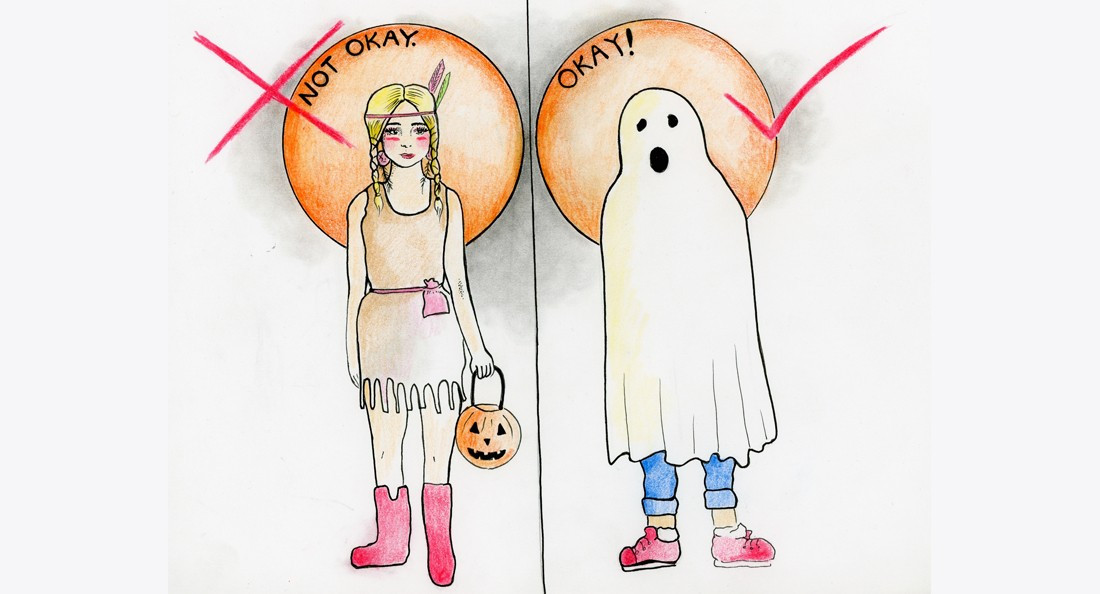Respectful costumes on Halloween
Avoiding cultural appropriation when dressing up this October
October is here, which means Halloween is just around the corner. In past years, a common problem with Halloween has been cultural appropriation in costumes. These depictions of other cultures can be disrespectful and offensive. Cultural appropriation can take many forms on Halloween and throughout the rest of the year.
Karen Froman, University of Winnipeg (U of W) faculty member in the department of history, describes cultural appropriation as “one culture ‘borrowing’ from another culture - but that’s a simple answer.
“In reality, it also has an awful lot to do with power relations, whereby the dominant culture takes elements of another culture that has been systematically oppressed by the dominant one,” she adds.
Froman says it is important to distinguish between cultural appropriation and cultural exchange, which is a mutual sharing of culture without the power imbalance.
Nadia Tyborowski, the vice president of events of the U of W’s Business and Administration Student Association (BASA), is preparing for Risky Business, the BASA Halloween social. She agrees costumes should not represent any disrespect or hold any harmful connotation.
“People dress in costumes (for the social), and that’s a big incentive for them to go - that is, to let loose and have fun, dressing as something other than they are in their average day,” Tyborowski says. “It’s important to send out the message of respect - in advertising and in posters – to help remind attendees not to choose any cultural (appropriative) costumes.”
Fromon says during Halloween, avoiding offensive costumes just takes common sense.
“For instance, consider the fact that it was illegal for Indigenous peoples to practice our cultures and ceremonies and to even wear our traditional clothing. We would be tossed in jail for doing so,” she says.
“This was all done in an effort to erase, eradicate and eliminate Indigenous people, cultures, identities, language,” Froman says. “Yet non-Indigenous peoples took all of that and used it as ‘play’ or ‘dress up’ while ignoring the history of colonialism, dispossession and genocide.”
Tyborowski explains since BASA’s Halloween social is not being hosted by the university, it is difficult to place specific regulations on the event. However, she asserts that BASA’s value for diversity helps the group to strive for a respectful environment. She feels confident the student body is responsible and aware of what is and isn’t offensive.
Fromon says that if someone were to wear a culture-appropriating costume, the first thing to know about addressing the problem is that one should make it about the costume and not the person wearing it. Then one can explain why the costume is inappropriate and offensive.
“Sometimes the response will be that the person was ‘just trying to be funny,’ but they need to understand that it isn’t funny to denigrate or make fun of an entire group of people, especially if that group has been systematically oppressed by a dominant group,” Froman says.
BASA’s Halloween Social will be held at Upstairs In The Village on Oct. 27 at 10 p.m.
Published in Volume 73, Number 5 of The Uniter (October 4, 2018)







